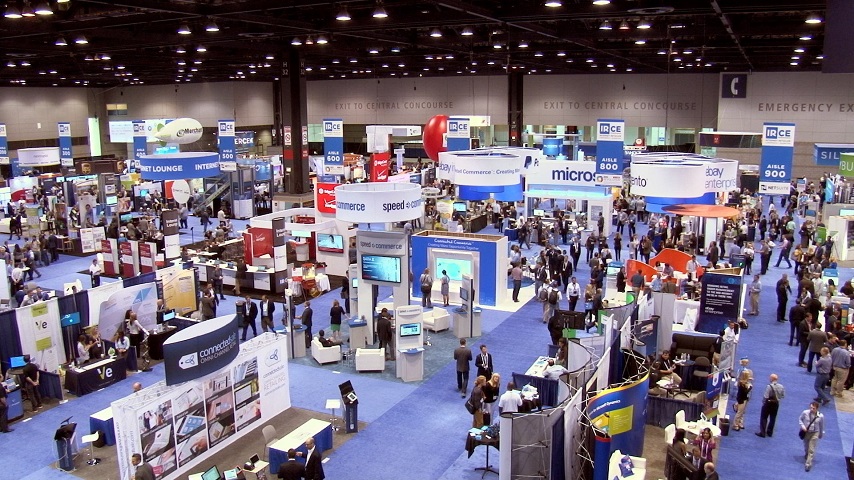As an event planner, one of the most critical tasks in ensuring the success of your event is promoting it effectively. Whether you’re organizing a corporate conference, a trade show, a product launch, or a networking gathering, event promotion is the key to attracting attendees, driving engagement, and ultimately achieving your event’s goals. In a competitive market where potential attendees are bombarded with multiple event options, it’s crucial to stand out and generate excitement early on. This blog provides four powerful event promotion tips that can help you market your event more effectively and drive higher attendance.
1. Leverage Social Media for Maximum Exposure
Social media is one of the most powerful tools in event promotion. With millions of people actively engaging with social platforms like Facebook, Instagram, Twitter, and LinkedIn, it’s a perfect place to amplify your event’s visibility. Social media allows you to interact directly with your audience, build excitement, and keep potential attendees engaged throughout the promotional period.
A. Create Shareable Content
To make the most of social media, your content should be engaging and shareable. Create a content strategy that includes a mix of posts—teasers, behind-the-scenes glimpses, speaker announcements, and interactive posts that encourage engagement.
For instance, if your event is a trade show, post sneak peeks of the exhibits, interviews with key speakers, or previews of the product launches. Highlight the benefits attendees will gain, such as learning about industry trends or networking opportunities with top leaders.
You can also run polls, contests, and giveaways on social media to build excitement. For example, offering a free ticket to the event for those who share your event post or tag others in the comments can increase your reach and engagement.
B. Use Hashtags and Geo-tags
Hashtags are one of the most effective ways to make your event visible to a wider audience. Create a unique event hashtag, such as #EventName2024, and encourage your followers to use it when sharing their own content related to the event. This builds a community and amplifies your reach.
Additionally, make use of geo-tags to highlight the event location, allowing those who are in the area to discover your event easily.
C. Paid Social Media Campaigns
While organic reach is important, paid social media campaigns can be highly effective in driving attendance, especially if you’re targeting a specific demographic. Platforms like Facebook and LinkedIn offer robust targeting tools that allow you to reach people based on location, interests, job titles, industries, and more.
For example, LinkedIn Ads can help you target professionals in specific industries, while Facebook Ads can be highly effective for targeting local audiences. By investing in paid campaigns, you can ensure your event reaches the right people, even outside your existing network.
2. Leverage Email Marketing to Build Relationships and Increase Registrations
Email marketing remains one of the most effective ways to communicate with your audience, nurture relationships, and drive event registrations. However, simply sending an email blast isn’t enough. You need a strategy that delivers value, keeps recipients engaged, and convinces them to register.
A. Build and Segment Your Email List
Before you can start promoting your event via email, you need a targeted email list. Ideally, this should include a mix of past attendees, industry professionals, and potential attendees who have shown interest in your events before.
Once you’ve built your email list, segment it based on factors like location, industry, and level of interest. This segmentation allows you to send personalized emails that are relevant to each group. For instance, you could send an email to past attendees highlighting the speakers they loved from previous events or offering them early access to ticket sales.
B. Create Compelling Email Campaigns
Your emails should be visually appealing, informative, and action-oriented. Start with a compelling subject line that grabs attention. Emails like “Exclusive Discount for Early Registration!” or “Don’t Miss Out – Only 5 Days Left to Register!” create urgency and encourage recipients to open your email.
Within the email, include details about your event—such as the date, location, speakers, and what attendees will gain. Highlight any early-bird discounts or limited-time offers, and always include a strong call to action, such as “Register Now” or “Save Your Spot.”
C. Nurture Leads With a Drip Campaign
A drip campaign is a series of emails sent to potential attendees over a period of time to nurture their interest. For example, you can send an initial email with event details, followed by a second email with a spotlight on featured speakers, and then a final email offering exclusive discounts for those who haven’t yet registered.
This keeps your event top of mind and gradually nudges leads to take action.
D. Post-Event Follow-Up
Your email campaign shouldn’t stop once the event is over. Following up with attendees after the event allows you to maintain the relationship and sets the stage for future events. Send a thank-you email, provide links to session recordings or event highlights, and gather feedback to improve for next time. Including a teaser about your next event or a special offer for future tickets will keep the engagement going.
3. Create Partnerships to Expand Your Reach
One of the most effective ways to promote your event is by partnering with other organizations, influencers, or media outlets that share a similar audience. Partnering with the right people can significantly increase your event’s visibility and provide access to new networks of potential attendees.
A. Partner With Industry Influencers
Influencer marketing is not just for consumer products—it can also be highly effective for events. Identify key influencers within your industry who have large followings and a strong reputation. Ask them to promote your event through their channels by sharing event details, discount codes, or even hosting a live Q&A session with a speaker.
Influencers can also serve as trusted voices who help validate the credibility and value of your event, making it more attractive to potential attendees. Influencers may be willing to promote your event in exchange for free tickets, access to the event, or a paid partnership.
B. Collaborate With Sponsors and Partners
If your event has sponsors or exhibitors, collaborate with them on co-branded marketing efforts. Encourage your sponsors to promote the event to their own audiences through email marketing, social media, or even content on their websites.
Sponsors benefit from the increased exposure, and you gain access to a broader audience. You can also co-create content such as blog posts, webinars, or podcasts that discuss the event, its theme, and why people should attend.
C. Media Partnerships
Partnering with media outlets or publications that cater to your target audience is another great way to expand your event’s reach. Offer them an exclusive story or behind-the-scenes access to the event in exchange for coverage. This might include press releases, interviews, or guest articles that promote the event.
Media partners can provide exposure in the form of articles, mentions in newsletters, and social media shout-outs, helping you reach an even wider audience.
4. Focus on Event Website Optimization for Conversions
Your event website is often the first point of contact for potential attendees, so it’s essential that it’s optimized to convert visitors into registrants. A website that is easy to navigate, visually appealing, and full of relevant information can make the difference between a visitor leaving your page or signing up.
A. Make Registration Easy and Accessible
Your registration process should be quick and easy. The simpler it is for people to sign up, the higher your conversion rates will be. Use a user-friendly event registration platform that offers one-click sign-up, and allow attendees to register with minimal information.
Incorporate multiple payment options, including credit cards, PayPal, and invoicing, to cater to different attendee preferences. Offering discounts or early-bird pricing should be prominently displayed on the registration page to encourage immediate sign-ups.
B. Provide Detailed Event Information
Your website should provide clear, comprehensive information about the event. Include the date, time, venue, agenda, list of speakers, and any other essential details that attendees will need. The more detailed and transparent you are, the less likely potential attendees will be confused or discouraged from registering.
C. Include Testimonials and Social Proof
Include testimonials or case studies from previous events to show potential attendees what they can expect. Social proof, such as quotes from past attendees or media mentions, can build credibility and influence decision-making.
D. Make Your Website Mobile-Friendly
Many people access websites on their phones or tablets, so ensure your event website is mobile-optimized. This is especially important for the registration process, where any barriers or difficulties could cause potential attendees to abandon the process. A responsive website ensures a seamless experience for users on all devices.
Conclusion
Effective event promotion is essential for driving attendance, building excitement, and ensuring the success of your event. By leveraging social media, optimizing email marketing, creating valuable partnerships, and ensuring your event website is conversion-friendly, you can reach a wider audience and boost registration rates. Remember, the key to successful promotion is consistency, creativity, and a strategic approach. By following these four event promotion tips, you’ll be well on your way to hosting a memorable and well-attended event.


